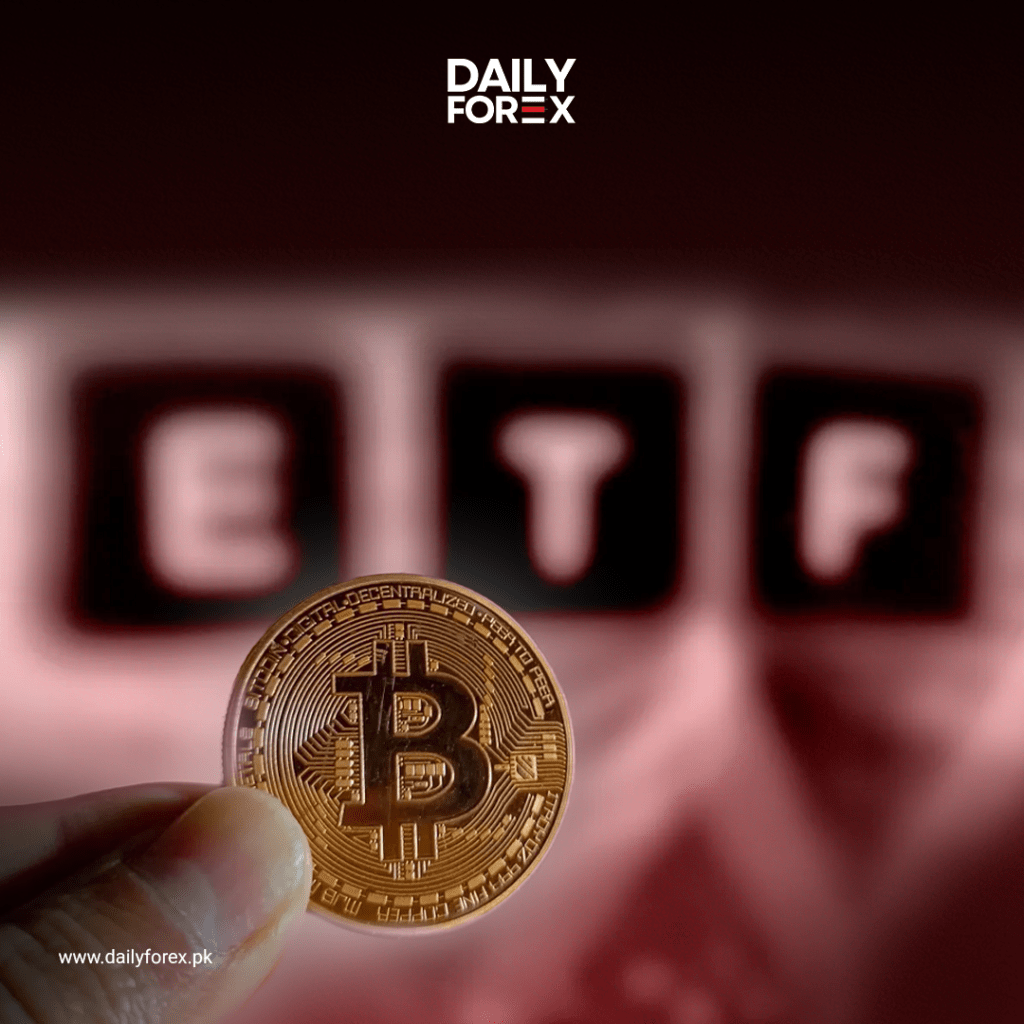As Bitcoin continues to reshape the financial landscape, new investment vehicles have emerged—offering exposure to crypto without owning it directly. One of the most popular options? Bitcoin Futures ETFs.
In this guide, we’ll break down everything you need to know about Bitcoin futures ETFs, how they work, their pros and cons, and whether they belong in your investment portfolio.
🔍 What is a Bitcoin Futures ETF?
A Bitcoin Futures ETF (Exchange-Traded Fund) is a publicly traded investment fund that tracks the price of Bitcoin futures contracts, not Bitcoin itself.
Bitcoin futures are regulated contracts that let traders speculate on the future price of Bitcoin. These contracts are traded on established exchanges like the Chicago Mercantile Exchange (CME)—not crypto platforms.
So instead of holding BTC, the ETF holds contracts betting on where BTC prices are heading.
💼 Quick Recap: What is an ETF?
An ETF is a fund that trades like a stock and tracks an index, commodity, or asset class.
A Bitcoin Futures ETF does not hold actual Bitcoin. Instead, it owns Bitcoin futures contracts, giving you exposure to BTC price movements without needing to set up a crypto wallet.
⚙️ How Does a Bitcoin Futures ETF Work?
A Bitcoin futures ETF invests in Bitcoin futures contracts that are set to expire on specific dates. These ETFs continuously roll over contracts—selling expiring ones and buying new ones—so they remain exposed to Bitcoin’s price.
💡 Example:
- If Bitcoin futures are set to buy at $65,000 and BTC hits $75,000, the ETF profits.
- If BTC drops to $55,000, the ETF may lose value.
This allows traders to speculate on BTC price movements without buying the actual cryptocurrency.
✅ Key Benefits of Bitcoin Futures ETFs
- Regulated Access: Traded on major exchanges, these ETFs offer a safe entry into crypto exposure via familiar platforms like Fidelity or Robinhood.
- No Wallet Needed: You don’t need to worry about storing private keys or managing a crypto wallet.
- High Liquidity: These ETFs can be bought or sold anytime the market is open.
- Diversification: Adds a crypto edge to traditional portfolios without the hassle of managing digital assets directly.
⚠️ Risks and Challenges
Despite the convenience, Bitcoin futures ETFs come with risks:
- High Volatility: Crypto markets are notorious for wild swings—ETFs based on them are no different.
- Tracking Errors: Futures-based ETFs don’t always follow Bitcoin spot prices perfectly.
- Contango Risk: Futures prices can be higher than the spot price, leading to long-term losses when contracts are rolled over.
- Management Fees: These ETFs charge annual fees that can eat into your profits.
🧾 No Direct Ownership: Good or Bad?
Pros:
- Avoid risks of wallet hacks, stolen keys, or tech errors.
- Stay compliant with traditional financial regulations.
- No need to understand the technical side of crypto custody.
Cons:
- You don’t control the actual Bitcoin.
- You can’t use BTC for DeFi, payments, or on-chain transactions.
- You miss out on the decentralized ethos of crypto.
So whether indirect exposure is a benefit or drawback depends on your investment goals.
📈 Popular Bitcoin Futures ETFs in 2025
| Ticker | ETF Name | Key Highlights |
|---|---|---|
| BITO | ProShares Bitcoin Strategy ETF | First U.S.-approved Bitcoin futures ETF |
| BTF | Valkyrie Bitcoin Strategy ETF | Tracks CME Bitcoin futures contracts |
| BITS | Global X Blockchain & Bitcoin Strategy ETF | Offers dual exposure to blockchain firms & BTC futures |
| BITC | Bitwise Bitcoin Strategy ETF | Actively managed exposure to Bitcoin futures |
🧠 Final Thoughts: Should You Invest?
Bitcoin Futures ETFs offer a gateway to the crypto market with:
- No need for crypto wallets
- Regulated platforms
- Broad investor access
But they also carry risks like volatility, fees, and imperfect price tracking.
📌 Pro Tip: Always DYOR (Do Your Own Research). Assess your financial goals and risk appetite before investing.
Stay Updated With Dailyforex.pk




